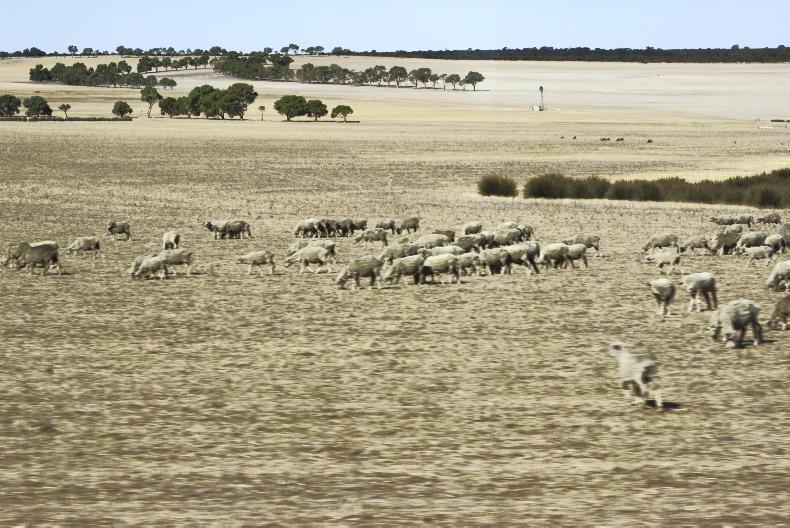Reports in the Financial Times that the UK government will grant tariff and quota-free access to Australia for agricultural produce entering the UK market is as big an issue for Irish farmers as their UK counterparts.
This is reinforced by the Northern Irish agriculture Minister Edwin Poots who sent a strongly worded letter to the UK minister responsible for agriculture, George Eustace.
The letter draws heavily on the impact assessment released by the UK government last June, which shows that UK agriculture would lose out.
Little benefit for the UK
Surprisingly, there is very little benefit for the UK in a trade deal with Australia, but it is politically symbolic as the first occasion where the UK government can demonstrate a separate trade policy from the EU.
Farm leaders in the UK were surprisingly slow in raising concerns about the trade negotiations that the UK government were engaged in.
As recently as March, the Trade and Agriculture Commission submitted its report to government which recommended tariff- and quota-free entry for agricultural produce to the UK
There has been serious focus on standards, particularly in light of any deal with the US.
As recently as March, the Trade and Agriculture Commission submitted its report to government which recommended tariff- and quota-free entry for agricultural produce to the UK.
This was surprising given the strong farmer representation on the group through the leaders of NFU England, Wales, Scotland and Northern Ireland.
The Commission also included Sir Lockwood Smith, former New Zealand agriculture minister and strong advocate for complete free trade in agricultural produce.
Precedent
If the UK government gives free access to Australia for agricultural produce, it will create the base line for future and ongoing trade negotiations as well.
It was interesting that KPMG global head of agriculture Ian Proudfoot told the IFJ/KPMG webinar this week that he expected New Zealand would expect to secure tariff- and quota-free access to the UK in their ongoing negotiations.
Similarly with Canada, who have rolled over the EU deal for the moment, but their farm leaders have put down a market that they expect modifications in the UK deal not present with the EU.
This refers more to accepting hormone beef than quotas because they send so little anyway.
Knock-on effect
Unlimited access to the UK market for beef and sheepmeat will have as big an impact on Irish farmers as their UK counterparts.
It will be a double hit – increased competition in the UK market for Irish exports and increased competition in EU markets from likely increased UK exports.
This will be inevitable if the UK marketplace becomes crowded, as the UK has unlimited access to EU markets with tariff- and quota-free access.
It is suggested by advocates for tariff- and quota-free access that Australia and New Zealand are commercially unlikely to switch huge volumes of exports to the UK.
New Zealand has a 228,000t sheepmeat quota, which it hasn't come close to filling in recent years, and this is used as an example.
However, with Australia, it is different, because it has negligible quota at present, so it will grow sales even if from a low base.
Also, both countries are major suppliers to China, and if anything was to happen that relationship, then big volumes would come on to world markets quickly.
Trade deals like these were the inevitable consequence of Brexit.
The only sector on which it will have a major impact is agriculture - positive for Australia, negative for the UK and Ireland.
Politically, it is a deal that has to happen for the UK and Australia will have used this as a negation lever to secure the tariff- and quota-free access.
New Zealand will follow and the precedent will be set for whenever the UK gets around to negotiating with Mercosur, the US and Canada.
It will be the biggest consequence of Brexit for farmers and while the UK could, at a future date, reapply to rejoin the EU, it will be virtually impossible to unravel these deals being agreed by the UK.
The difficulty allocating the New Zealand sheepmeat quota between the EU and UK is evidence of that






 This is a subscriber-only article
This is a subscriber-only article










SHARING OPTIONS: